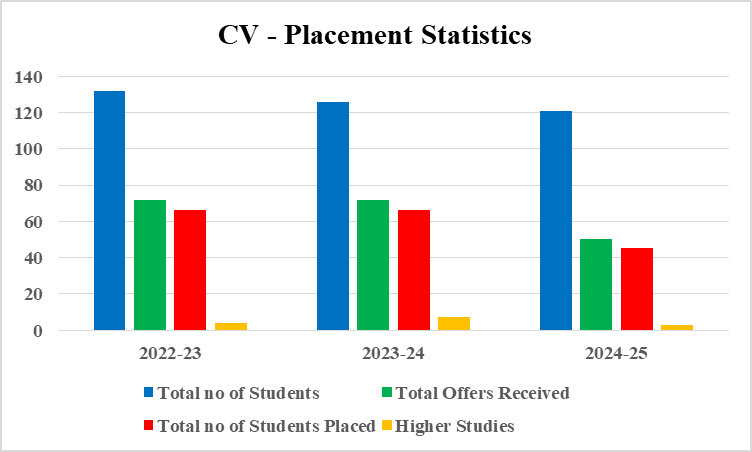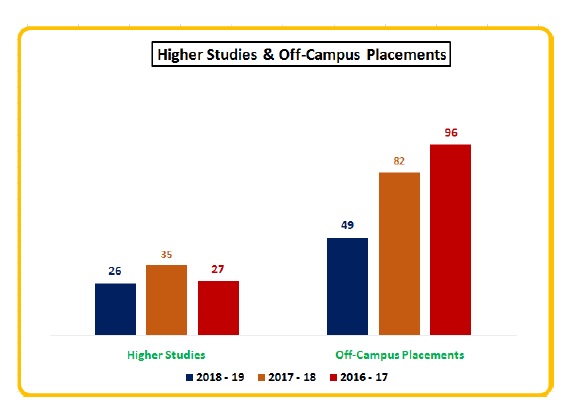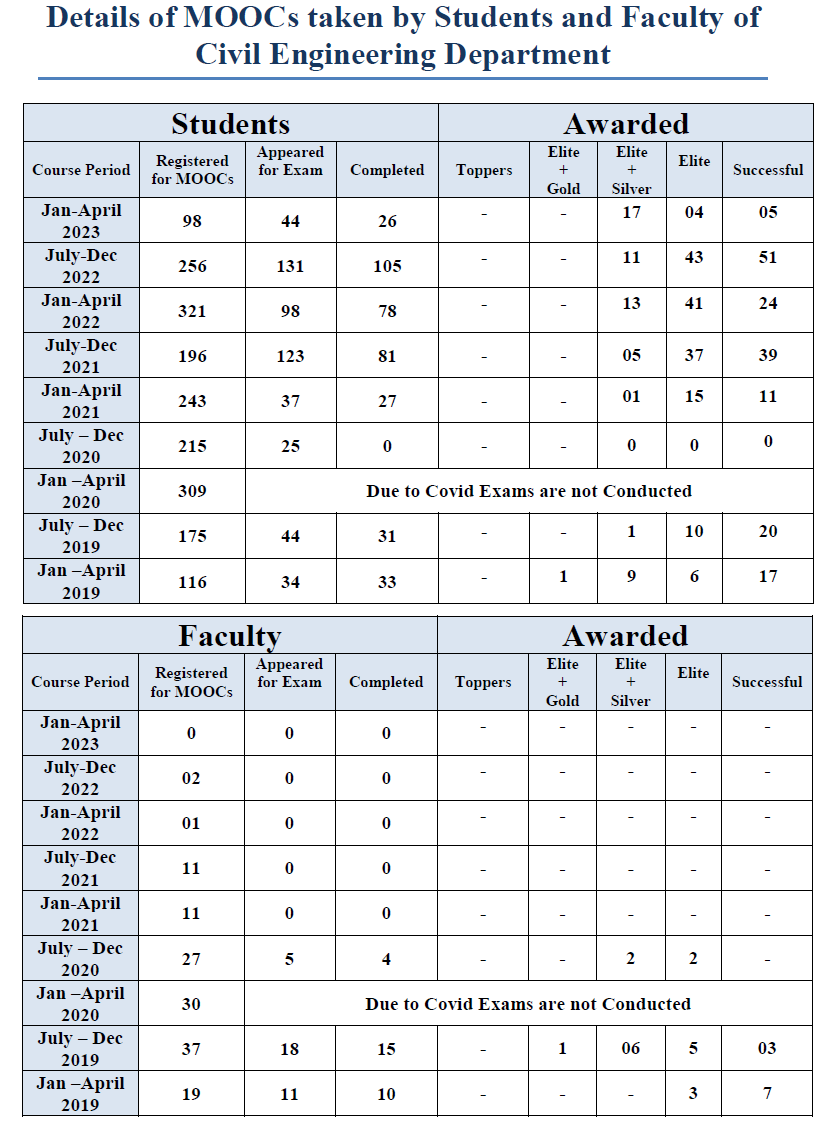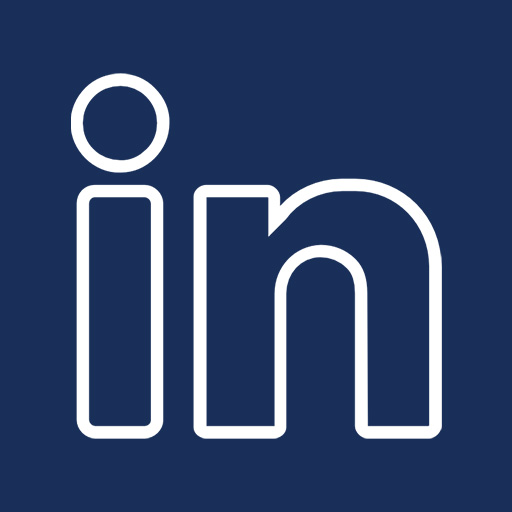Program Overview
The Department of Civil Engineering is for students passionate about designing, constructing, and maintaining the built environment. It’s ideal for those who want to solve real-world infrastructure challenges, including building sustainable cities, managing water resources, and improving transportation systems. Whether you aim to work in construction, environmental engineering, urban planning, or research, this department provides the foundation and tools to shape the world through engineering.
The Civil Engineering Department was started in the year 1962 as one of the first branches in P.E.S. College of Engineering, Mandya with an intake of 40. The department has carved a niche for itself by offering the most competent instructional programs to the students. The department is running an undergraduate programme with an intake of 120 and it has started PG in CAD Structures with an intake of 18 in the year 2006. The department has been recognized as research centre under VTU, Belgaum. It possesses state of the art facilities to cates to the needs of undergraduate students, post graduate students and research scholars. The department has distinguished faculty with specialisation in almost all major areas of civil engineering. It is active in offering continuing education programmes to the professionals from industry and academia.
The Department is well equipped with laboratories, computing facilities, independent library and other infrastructure. The Department is equipped with modern infrastructure to support both academic and research activities. Key facilities include advanced labs for Hydraulics, Structures, Soil Mechanics, Highway, Environmental, and Surveying. The faculty members take personal care, counsel the students and motivate them at regular intervals. Further, the parents/guardians are informed about their attendance and progress of their ward. Tutorial classes & remedial classes are conducted to encourage the slow learners. Personality development and English communication classes are also conducted. The department provides testing and consultancy services to various government departments and to the construction industries in and around Mandya. The department is proud to have distinguished alumni doing excellent professional work at the global level.
Total Intake
120
Program Type
UG
Duration
4 Years
- About Course
- NBA
- Faculty
- Placement
- Research
- Centre of Excellence
- Achievements
- Results & Role of Honor
- Study Materials
- Professional clubs and chapter
- MOOCs
Vision
To attain Excellence in imparting quality civil engineering education to meet the societal needs
Mission
- Impart civil engineering and managerial skills with state of art infrastructure, competent and committed faculty using outcome based educational curriculum.
- Promote research, project management and consultancy.
- Inculcate professional ethics, leadership qualities and entrepreneurial skills to meet the societal needs.
Program Educational Objectives (PEOs)
Graduates of the program will be able to
- PEO1: Apply technical competence in the field of Civil Engineering with a strong background in basic science and mathematics.
- PEO2: Analyse and interpret data to design or evaluate civil engineering systems to satisfy societal needs with the use of modern tools including higher education.
- PEO3: Analyse and interpret data to design or evaluate civil engineering systems to satisfy societal needs with the use of modern tools including higher education.
Program Outcomes (POs)
Engineering Graduates will be able to
- Engineering Knowledge: Apply knowledge of mathematics, natural science, computing, engineering fundamentals and an engineering specialization as specified in WK1 to WK4 respectively to develop to the solution of complex engineering problems.
- Problem analysis: Identify, formulate, review research literature and analyze complex engineering problems reaching substantiated conclusions with consideration for sustainable development. (WK1 to WK4)
- Design/development of solutions: 3.Design creative solutions for complex engineering problems and design/develop systems/components/processes to meet identified needs with consideration for the public health and safety, whole-life cost, net zero carbon, culture, society and environment as required. (WK5)
- Conduct investigations of complex problems: Conduct investigations of complex engineering problems using research-based knowledge including design of experiments, modelling, analysis & interpretation of data to provide valid conclusions. (WK8).
- Engineering Tool Usage: Create, select and apply appropriate techniques, resources and modern engineering & IT tools, including prediction and modelling recognizing their limitations to solve complex engineering problems. (WK2 and WK6)
- The Engineer and The World: 6.Analyze and evaluate societal and environmental aspects while solving complex engineering problems for its impact on sustainability with reference to economy, health, safety, legal framework, culture and environment. (WK1, WK5, and WK7).
- Ethics: Apply ethical principles and commit to professional ethics, human values, diversity and inclusion; adhere to national & international laws. (WK9)
- Individual and Collaborative Team work: Function effectively as an individual, and as a member or leader in diverse/multi-disciplinary teams.
- Communication: Communicate effectively and inclusively within the engineering community and society at large, such as being able to comprehend and write effective reports and design documentation, make effective presentations considering cultural, language, and learning differences
- Project management and finance: 10.Apply knowledge and understanding of engineering management principles and economic decision-making and apply these to one’s own work, as a member and leader in a team, and to manage projects and in multidisciplinary environments.
- Life-long learning: 11.Recognize the need for, and have the preparation and ability for
(i) independent and life-long learning
(ii) adaptability to new and emerging technologies and (iii) critical thinking in the broadest context of technological change. (WK8)
Program Specific Outcomes (PSOs)
The Under Graduate (UG) of B.E Computer Science & Engineering Program has defined Program Specific Outcomes (PSO) which are listed below.
- PSO-1: Apply knowledge of basic science to analyze and solve problems in the core area of Civil Engineering such as Structural, Geotechnical, Transportation, Environmental, Hydraulics and Water resources engineering.
- PSO-2: Analyze, Plan, design, quality assessment and cost estimate of Civil Engineering structures with professional ethics.
- PSO-3: Work in a consulting organization or can be an entrepreneur to investigate and supervise Civil Engineering structures using modern tools and technology to provide sustainable solutions to meet the societal needs
About NBA
| Program Name | Duration | Start | End |
|---|---|---|---|
| Civil Engineering | 5 Years | 18- 04 - 2004 | 11-6-2009 |
| Civil Engineering | 3 Years | 01-02-2017 | 01-02-2020 |
| Civil Engineering | 3 Years | 21-02-2020 | 30-06-2023 |
| Civil Engineering | 3 Years | 27-08-2023 | 30-06-2023 |
AIDED TECHNICAL STAFF
| Name of Technical Staff | Designation | Qualification | Work Experience (Yrs.) |
|---|---|---|---|
| R SHASHIKANTH | ASST INSTRUCTOR | JOC | 20 Years months |
| G S VEERENDRA GOWDA | ASST INSTRUCTOR | DCE | 15 Years |
| Y N JADLAIAH | ASST INSTRUCTOR | JOC | 15 Years |
| A C SANNAMARYAPPA | ASST INSTRUCTOR | PUC | 20 Years |
| B KUMAR | HELPER | SSLC | 18 Years |
| K N SHANTHARAJU | HELPER | SSLC | 15 Years |
| H S SACHIN | HELPER | SSLC | 15 Years |
| H S RAKSHITH | HELPER | SSLC | 13 Years |
| D B SHIVAPUTRA | HELPER | B A | 5 Years 8 months |
| MANGALA | HELPER | D.Ed | 4 Years 8 months |
UN-AIDED TECHNICAL STAFF
| Name of Technical Staff | Designation | Qualification | Work Experience (Yrs.) |
|---|---|---|---|
| RANJITHA H S | FOREMAN | B.E | 7 Years 3 Months |
| P PARAMANANDA | ASST INSTRUCTOR | B.Sc. | 27 Years |
| R SHWETHA | COMPUTER INSTRUCTOR | DEC | 12 Years |
| N VIJAYA | OFFICE ASSISTANT | PUC | 19 Years 9 Months |
| Name of the Research Guide | Designation | Email-Id |
|---|---|---|
| Dr. R. Mahalinge Gowda | Professor (Retired Principal of PESCE) | mahalgpes@gmail.com |
| Dr. Gopi Siddappa | Professor (Retired HoD of Civil Dept, PESCE) | gopisiddappa@gmail.com |
| Dr. Jayashankar Babu B.S | Professor (Retired HoD of Civil Dept, PESCE) | jsbabupesce@gmail.com |
| Dr. T. M. Prakash | Professor (Retired HoD of Civil Dept, PESCE) | tmprakash.1964@gmail.com |
| Dr. S. Poorna Prajna | Associate Professor | aviprajna26@gmail.com |
| Dr. H. C. Chowde Gowda | Associate Professor | hcgowda26@gmail.com |
| Dr. S. Naveen Kumar | Associate Professor | naveenkumar.dec02@gmail.com |
| Dr. Lakshmi P S | Associate Professor | lakshmips114@gmail.com |
Ph.D Awarded in the year 2020-2021
| Name | University | Date of award | Name of the Guide | Title of Research |
|---|---|---|---|---|
| Dr. Poorna Prajna S | VTU | 8th February 2020 | Dr. Mohammed llyas Anjum | Investigations on Laboratory Performance of Bituminous Mixes Modified With Mineral and Chemical Additives |
| Dr. Chowde Gowda H.C | VTU | 30th July 2021 | Dr. R M Mahalinge Gowda | A Study of Vehicular Emission Dispersion Through Selected Building Configurations in Urban Areas Using Wind Tunnel |
Ph.D Awarded in the year 2022-2023
| Name | University | Date of award | Name of the Guide | Title of Research |
|---|---|---|---|---|
| Dr. Sandeep Kumar | UVCE (Bangalore University) | 3rd June 2022 | Dr. Chethan K | Experimental and optimization studies on bagasse ash based suitable concrete |
| Dr. S Naveen Kumar | VTU | 1st August 2023 | Dr. T. M. Prakash | Technical and Economical Feasibility of Value Added Materials and Reinforcement Orientation in Concrete |
| Dr. Lakshmi P S | VTU | 1st August 2023 | Dr. B. S. Jayashankar Babu | Technical and Economic Feasibility of Using Value Added Materials in Concrete |
| Dr. Shivraj G Nayak | VTU | 5th August 2023 | Dr. R. Mourougane | An experimental investigation on high strength alkali activated rectangular concrete slabs |
| Name | Guide Name | University/Research Center | Title | Status |
|---|---|---|---|---|
| R K Kumaraswamy | Dr. Ravi Kumar | UVCE, Bangalore University | Analysis of land use capability classification and crop suitability for Kabini command area using RS and GIS technique | Course Work completed |
| Divyashree M | Dr. T. M. Prakash | VTU | A Comprehensive and comparative study on the influence of fibre Reinforcement on the properties of self-compacting concrete | Open Seminar II completed |
| Shambavi S | Dr. R. M. Mahalinge Gowda | VTU | Experimental investigation of selected cool pavements performance | Open Seminar I completed |
| Abhishek G B | Dr. R. M. Mahalinge Gowda | VTU | Experimental study on performance of Ferro-cement sandwiched with selected fibers | Open Seminar II completed |
| H R Shyam Prasad | Dr. Kiran T | UVCE, Bangalore University | Experimental and Numerical Study on Geopolymer concrete | Course Work completed |
| Ashwini B | Dr. Shivakumar J Nyamathi | UVCE, Bangalore University | Assessment of Impact Of Climate And Land Use Land Cover Changes On Runoff Using Hydrological Model | Course Work completed |
| Rashmi M P | Dr. A. V. Sriram | UVCE, Bangalore University | Influence of OPC and fibres on the performance of rice husk ash based geopolymer concrete | Course Work completed |
| Madhusudhan M S | Dr. Anand V Shivapur | VTU | Impact of Climate Change on Groundwater Resources of Malaprabha Right Bank Canal Command | Open Seminar I completed |
| Archana P | Dr. Vivek R Das | VTU | Traffic signal timing optimization using empirical approach and microscopic simulation programme | Course Work completed |
| Santosh Kumar C V | - | VTU | - | Registered |
| Kavya S B | Dr. Lakshmi P S | VTU | - | Registered |
| Asharani G S | Dr. Chowde Gowda H.C | VTU | - | Course Work completed |
| Kumuda V | Dr. Poorna Prajna S | VTU | - | Registered |
| Kiran Juneja K | Dr. Poorna Prajna S | VTU | - | Registered |
| Name | University | Date of award | Name of the Guide | Title of Research |
|---|---|---|---|---|
| Dr. Poorna Prajna S | VTU | 8th February 2020 | Dr. Mohammed llyas Anjum | Investigations on Laboratory Performance of Bituminous Mixes Modified With Mineral and Chemical Additives |
| Dr. Chowde Gowda H.C | VTU | 30th July 2021 | Dr. R M Mahalinge Gowda | A Study of Vehicular Emission Dispersion Through Selected Building Configurations in Urban Areas Using Wind Tunnel |
PATENTS 2024-2025
| Name of Faculty | Application No. | Title | Status |
|---|---|---|---|
|
Dr. Lakshmi P S Dr. Naveen Kumar S Dr. Sandeep Kumar D.S Dr. Chowde Gowda H C Ms. Ashwini B |
202441026390 A | Green masonry wall production: utilizing eco-friendly mortar with sugarcane bagasse ash | Published |
|
MR. DHANANJAY M MS. SHARMILA R DR. AKSHAY J DR. SYEDA NIKHAT FATHIMA MS. ARPITHA B Y MS. SREENIDHI H M MS. APOORVA V DR. PRAMOD |
437716-001 | Composite hollow cement concrete block | Published |
|
Adarsh M J Dr. Kiran B M Dr. Poorna Prajna S Mr. Nakul N Dr. Suresh Chandra H S Dr. Nagendra Prasad B |
202441022056 A | Trace metals concentration in wet and bulk precipitation in urban environment | Published |
|
Er. Shivakumar S Dr. Sonal Saluja Dr. Karthik M Dr. Khushubu Park Dr. Shivraj G Nayak Dr. Shiva Prasad N Ms. Preeti Tapal |
440218-001 | Adaptive noise cancelling window | Published |
PATENTS 2022-2023
| Name of Faculty | Application No. | Title | Status |
|---|---|---|---|
| Shivraj G Nayak | 349270-001 | An Architectural Engineering Construction Device on 3D Printing Technology For Designing Concrete Structures | Published |
| Madhushan M S Dr H C Chowdegowda |
20234107955 | A Novel Method to Reduce Hardness by Using Filter materials | Published |
|
Lakshmi P S Dr Jayashankar Babu B S Naveen kumar S Dr Chowdegowda H C Dr S Poornaprajna |
202341028533 | Method of producing masonry units using sugarcane bagasse ash as a value-added material | Published |
2024–2025
| Name of the Faculty / Principal Investigator | Project Title | Year of Sanction | Funding Agency | Total Amount Sanctioned | Duration and Status |
|---|---|---|---|---|---|
| Madhusudhan M S | A sustainable approach to reduce plastic pollution and floating debris in rivers, canals and oceans | 2024–25 | KSCST | 0.05 lakhs | Sanctioned |
2023–2024
| Name of the Faculty / Principal Investigator | Project Title | Year of Sanction | Funding Agency | Total Amount Sanctioned | Duration and Status |
|---|---|---|---|---|---|
| Dr. Shivaraj G Nayak | Strengthening of flexural and shear strength inadequate RC beam due to distress by wrapping carbon and glass fibre reinforced polymer. | 2023–24 | KSCST | 0.055 lakhs | Sanctioned |
| Madhusudhan M S | Novel Technology to remove fluoride content using bio char | 2023–24 | KSCST | 0.05 lakhs | Sanctioned |
2022–2023
| Name of the Faculty / Principal Investigator | Project Title | Year of Sanction | Funding Agency | Total Amount Sanctioned | Duration and Status |
|---|---|---|---|---|---|
| Dr. H. C. Chowdegowda & Madhusudhan M S | Portable Hydroelectric Generator | 2022–23 | KSCST | 0.05 lakhs | Sanctioned |
| Madhusudhan M S Dr. H. C. Chowdegowda |
Groundwater Modelling of Mandya City Using Visual Mudflow Flex | 2022–23 | KSCST | 0.05 lakhs | Sanctioned |
| Madhusudhan M S | Application of Pollution Index, Water Quality Index and Model Quality For Evaluation of Pollutants In Virja Canal Mandya District, Karnataka | 2022–23 | KSCST | 0.05 lakhs | Sanctioned |
| Madhusudhan M S | Assessment of Ground Water Potential Zones Using GIS | 2022–23 | KSCST | 0.04 lakhs | Sanctioned |
FACULTY ACHIEVEMENT ACADEMIC YEAR 2024-25
Sponsored Research
| Name | Description of the Achievement |
|---|---|
| Madhusudhan M S | A sustainable approach to reduce plastic pollution And floating debris in rivers, canals and oceans - KSCST-5000Rs |
Faculty competencies in correlation to Research Patents
| Name | Description of the Achievement | |
|---|---|---|
|
Dr. Lakshmi P S Dr. Naveen Kumar S Dr. Sandeep Kumar D.S Dr. Chowdegowda H C Ms. Ashwini B |
Green masonry wall production: utilizing eco-friendly mortar with sugarcane bagasse ash Application No.: 202441026390 A |
Published |
|
MR. DHANANJAY M MS. SHARMILA R DR. AKSHAY J DR. SYEDA NIKHAT FATHIMA MS. ARPITHA B Y MS. SREENIDHI H M MS. APOORVA V DR. PRAMOD |
Composite hollow cement concrete block Application No.: 437716-001 |
Published |
|
Adarsh M J Dr. Kiran B M Dr. Poorna Prajna S Mr. Nakul N Dr. Suresh Chandra H S Dr. Nagendra Prasad B |
Trace metals concentration in wet and bulk precipitation in urban environment Application No.: 202441022056 A |
Published |
|
Er. Shivakumar S Dr. Sonal Saluja Dr. Karthik M Dr. Khushubu Park Dr. Shivraj G Nayak Dr. Shiva Prasad N Ms. Preeti Tapal |
Adaptive noise cancelling window Application No.: 440218-001 |
Published |
Faculty competencies in clearing NPTEL Courses
| Name | Description of the Achievement | |
|---|---|---|
| Dr. Shivaraj G Nayak | NBA Accreditation and Teaching and Learning in Engineering (NATE) – 12 Weeks | Elite |
| Dr. Poorna Prajna S | NBA Accreditation and Teaching and Learning in Engineering (NATE) – 12 Weeks | Elite + Silver |
| Dr. Poorna Prajna S | Sustainable Engineering Concepts and Life Cycle Analysis – 8 Weeks | Elite |
| Ashwini B | Surface Water Hydrology – 12 Weeks | Elite |
| Asharani G S | The Joy of Computing using Python – 12 Weeks | Successful |
STUDENT ACHIVEMENT 2024-2025
| Name | Description of the Achievement | |
|---|---|---|
| S S Steffinanaml | 50th Tamil Nadu State Junior Boys Kabaddi Championship – 2024 | Player |
| Karthik Gowda C | 3rd Senior National Level Dodgeball Championship 2025 (Men, Women, and Mixed) – Indian Dodgeball Federation (April 25–27, 2025) | Participant |
| Namratha K R | Represented VTU in Women’s Ball Badminton Team – All India Inter University Championship 2025–26 | Selection |
| Meghana M, Nimisha M Gowda, Ramya H L, Suhas Nayak I S | Design and Innovation Clinic 2025 – Project: “A Sustainable Approach to Reduce Plastic Pollution and Floating Debris in Rivers and Canals” | Second Runner-Up |
| Department of Civil Engineering Students | Akruthi-2025 & Dr. PUNITH RAJKUMAR CUP-4.0 (MIT-Thandavapura, Mysore, March 6–7, 2025) | Overall Championship |
| Sharanya M, Sanjana S U | CIVI CRYPT – Akruthi-2025 (MIT-Thandavapura, Mysore) | 1st Place |
| Parchith C D, Pavan Kumar, Sindhu M, Tripti G | TREASURE EXPLORER – Akruthi-2025 (MIT-Thandavapura, Mysore) | 1st Place |
| Siddappaji H R, Manasa K M | CE-PUZZLE – Akruthi-2025 (MIT-Thandavapura, Mysore) | 2nd and 3rd Place |
| Pavan B, Siddappaji H R | CIVIL BYTES – Akruthi-2025 (MIT-Thandavapura, Mysore) | 1st Place |
| Manasa K M, Harsih B P, Vinay T M, Vinay Kumar | FORCE NIRMAAN – UTSAVA 25 (MIT-Mysore, May 2025) – STRUCTURE SHACKDOWN | 1st Place |
| Manasa K M, Harsih B P, Vinay T M, Vinay Kumar | FORCE NIRMAAN – UTSAVA 25 (MIT-Mysore, May 2025) – PLAN IT RIGHT | 2nd Place |
| Manasa K M, Harsih B P, Vinay T M, Vinay Kumar | FORCE NIRMAAN – UTSAVA 25 (MIT-Mysore, May 2025) – SQUID GAME | 2nd Place |
| Inchara Gowda B S, Sanjana S U, Vidya Lokesh H | FORCE NIRMAAN – UTSAVA 25 (MIT-Mysore, May 2025) – QUIZZLE BUZZLE | 2nd Place |
FACULTY ACHIEVEMENT ACADEMIC YEAR 2023-24
Faculty competencies in correlation to Research Patents
| Name | Description of the Achievement | |
|---|---|---|
|
Dr. Lakshmi P S Dr. Naveen Kumar S Dr. Sandeep Kumar D.S Dr. Chowdegowda H C Ms. Ashwini B |
Green masonry wall production: utilizing eco-friendly mortar with sugarcane bagasse ash Application No.: 202441026390 A |
Published |
|
Mr. Dhananjay M Ms. Sharmila R Dr. Akshay J Dr. Syeda Nikhat Fathima Ms. Arpitha B Y Ms. Sreenidhi H M Ms. Apoorva V Dr. Pramod |
Composite hollow cement concrete block Application No.: 437716-001 |
Published |
|
Adarsh M J Dr. Kiran B M Dr. Poorna Prajna S Mr. Nakul N Dr. Suresh Chandra H S Dr. Nagendra Prasad B |
Trace metals concentration in wet and bulk precipitation in urban environment Application No.: 202441022056 A |
Published |
Sponsored Research
| Name | Description of the Achievement | ||
|---|---|---|---|
| Dr. Shivaraj G Nayak | Strengthening of flexural and shear strength inadequate RC beam due to distress by wrapping carbon and glass fibre reinforced polymer | KSCST | ₹5,000 |
| Madhusudhan M S | Novel Technology to remove fluoride content using bio char | KSCST | ₹5,000 |
Faculty competencies in clearing NPTEL Courses
| Name | Description of the Achievement | |
|---|---|---|
| Dr. Shivaraj G Nayak | Bridge Engineering – 12 Weeks | Elite + Silver |
| Dr. Poorna Prajna S | Accreditation and Outcome Based Learning – 8 Weeks | Elite + Silver |
| Madhusudhan M S | Subsurface Exploration: Importance and Techniques Involved – 8 Weeks | Elite |
| Sharmila R | Soil Mechanics / Geotechnical Engineering I – 12 Weeks | Successful |
| Asharani G S | Research Methodology – 8 Weeks | Successful |
STUDENT ACHIVEMENT 2023-2024
| Name | Description of the Achievement | |
|---|---|---|
| Karthik Gowda C | Senior National Dodgeball Championship (Men, Women & Mixed) organized by Indian Dodgeball Federation Association | 1st Place |
| Sanika G C | 53rd Senior Women’s National Handball Championship @ Purnea, Bihar (Organized by Bihar Handball Association) | Player |
| Parchith C D | Con.Dwg – Concrete Fair “Avinya” organized by RV College of Engineering, Kengeri | 2nd Place |
| Likith A, Deekshith Murthy | AutoCAD Drafting – Vidyarjan 2024 (Intercollegiate Symposium at Vidyavardhaka College of Engineering, Mysore) | Consolation |
| Likith A, Deekshith Murthy, Suraksha K P | Table Topics on Sustainability – Vidyarjan 2024 (Vidyavardhaka College of Engineering, Mysore) | 1st Place |
| Deekshith Murthy, Likith A, Suraksha K P | Sustainable Infrastructure Expo – Vidyarjan 2024 (Vidyavardhaka College of Engineering, Mysore) | 1st Place |
| Jahnavi A R, Darshan H L, Amoolya M | Quiz IS and IRC – Vidyarjan 2024 (Vidyavardhaka College of Engineering, Mysore) | Consolation |
| Anupriya C, Varshitha M S, Vidyashree Y J | Jumbled Letters – Vidyarjan 2024 (Vidyavardhaka College of Engineering, Mysore) | 3rd Place |
| Abhishek T S, Rahul, Prajwal G K | Bridgespace – Vidyarjan 2024 (Vidyavardhaka College of Engineering, Mysore) | 1st Place |
| Abhishek T S, Mohammad Umer | “CATALYST -2023" – Civil Engineering Quiz by Association of Consulting Civil Engineering (INDIA), Mysore Centre | Consolation (₹2500) |
KARNATAKA STATE COUNCIL FOR SCIENCE AND TECHNOLOGY
47th series of Student Project Programme (SPP): 2023-24
| Name | Description of the Achievement | Cash Prize |
|---|---|---|
| Khushi S, Bhumika N, Praveen M S, Swaroop Gowda P | Strengthening of flexural and shear strength inadequate RC beam due to distress by wrapping carbon and glass fibre reinforced polymer | ₹5,500 Under the guidance of Dr. Shivaraj G Nayak |
| Prathibha N, Sindhu T P, Vinay Iranna Anurasang, Jayanth S P | Novel Technology to remove fluoride content using bio char | ₹4,500 Under the guidance of Prof. Madhusudhan M S |
Ms Sahana, Ms. Prathibha N and Mr.Nischal G On being the toppers of the year 2024 and honoured by Builders association of India Mysuru Centre on 21st September 2024! 🏆, they have officially become a full-fledged Civil Engineers.
Department of Civil Engineering students won “Dr.PUNITH RAJKUMAR CUP-4.0”, Engineering Cricket Tournament organized by the department of civil Engineering, MIT – Thandavapura, Mysore
Participation in Events by Students of the Program in our Department
| Name | Description of the Achievement |
|---|---|
| Suraksha K P | 1st Place in Quiz Competition on “World Energy Conservation Day” with the theme “Powering Sustainability: Every Watt Counts” - Civil Department, PESCE Mandya |
| Amoolya M | 2nd Place in Quiz Competition on “World Energy Conservation Day” with the theme “Powering Sustainability: Every Watt Counts” - Civil Department, PESCE Mandya |
| Shreya M | 3rd Place in Quiz Competition on “World Energy Conservation Day” with the theme “Powering Sustainability: Every Watt Counts” - Civil Department, PESCE Mandya |
| Thanuja S | 1st Place in Drawing Competition on “World Energy Conservation Day” with the theme “Powering Sustainability: Every Watt Counts” - Civil Department, PESCE Mandya |
| Shamukhi Priya P | 2nd Place in Drawing Competition on “World Energy Conservation Day” with the theme “Powering Sustainability: Every Watt Counts” - Civil Department, PESCE Mandya |
| Sanjana L R | 3rd Place in Drawing Competition on “World Energy Conservation Day” with the theme “Powering Sustainability: Every Watt Counts” - Civil Department, PESCE Mandya |
| Deekshith Murthy | 1st Place in Video Making Competition on “World Energy Conservation Day” with the theme “Powering Sustainability: Every Watt Counts” - Civil Department, PESCE Mandya |
| Likith A | 2nd Place in Video Making Competition on “World Energy Conservation Day” with the theme “Powering Sustainability: Every Watt Counts” - Civil Department, PESCE Mandya |
FACULTY ACHIEVEMENT ACADEMIC YEAR 2022-23
Faculty competencies in correlation to Research Patents
| Name | Description of the Achievement |
|---|---|
| Shivraj G Nayak | An Architectural Engineering Construction Device on 3D Printing Technology For Designing Concrete Structures - 349270-001 - Published |
| Madhushan M S, Dr H C Chowdegowda | A Novel Method to Reduce Hardness by Using Filter materials - 20234107955 - Published |
| Lakshmi P S, Dr Jayashankar Babu, B S Naveen Kumar S, Dr Chowdegowda H C, Dr S Poornaprajna | Method of producing masonry units using sugarcane bagasse ash as a value-added material - 202341028533 - Published |
| Dr H C Chowdegowda, Madhusudhan M S | Portable Hydroelectric Generator - KSCST - 5000 Rs |
| Madhusudhan M S, Dr H C Chowdegowda | Groundwater Modelling of Mandya City Using Visual Mudflow Flex - KSCST - 5000 Rs |
| Madhusudhan M S | Application of Pollution Index, Water Quality Index and Model Quality For Evaluation of Pollutants In Virja Canal Mandya District, Karnataka - KSCST - 5000 Rs |
| Madhusudhan M S | Assessment of Ground Water Potential Zones Using GIS - KSCST - 5000 Rs |
Book Published
| Name | Description of the Achievement |
|---|---|
| Dr T M Prakash and Divyashree M | Environmental Studies - Khanna Publishing House -2022 |
| Shivraj G Nayak | Construction Project Management- RK Publications-2023 |
STUDENT ACHIEVEMENT 2022-2023
| Name | Description of the Achievement |
|---|---|
| Karthik Gowda C | VTU inter collegiate Mysuru Zone & State level Handball (Men) Championship - 2023-24 organised by MYCEM Mysuru Brindavan College of Engineering, Bangalore - Winners state 4th place |
| Karthik Gowda C | Senior national dodgeball open championship 2023-24 represented Karnataka Team - Madhya Pradesh - Winners |
| Karthik Gowda C | 3rd Indo Nepal Handball Championship 2023-2024 PCA SPOTS Event management Govt. of Nepal Regd.No.214966/75/076 - Gold Position |
| Karthik Gowda C | Handball open state championship 2023-24 represented Mandya District Team Chandrasekhar Patil Stadium Gulbarga - Winners |
| Karthik Gowda C | VTU Team Selection trials 2023-2024 JNNCE, Shivamoga - Selected to VTU Team |
| Karthik Gowda C | 3rd NATIONAL AMATEUR GAMES -2023 for Handball held at SOMRA SPORTS & DEFENCE ACADEMY JAIPUR RAJASTHAN - Gold medal (Winners) |
| Shreyas Niranjan Thejas K U | VERBAL VANGUARD at NIRMAN ISCE 2023 COLLEGE OF ENGINEERING BENGALURU - RUNNERS |
| Reethu GK, Sahana, Shreyas Niranjan | CONVOKE “CONCRETE FAIR 2023” RV College of Engineering, Bengaluru - 1st prize |
| Reethu GK | Con Strain “CONCRETE FAIR 2023” RV College of Engineering, Bengaluru - 1st prize |
| Ganesha D | Con Strain “CONCRETE FAIR 2023” RV College of Engineering, Bengaluru - 2nd prize |
| Lingamurthy B, Jayanth K S, Mahadeva N, Chandan N U, Prathibha N | CON-X-Survey - “CONCRETE FAIR 2023” RV College of Engineering, Bengaluru - 2nd prize |
| Toufeeq Ahmed | Con.dwg-AutoCad - “CONCRETE FAIR 2023” RV College of Engineering, Bengaluru - 2nd prize |
| Toufeeq Ahmed R, Syed Sadiq, Ranjith B J | “Cadventure” at State Level Technical Symposium "Force sumMIT 24 - A Marathon of Events Round the Clock" - MIT - 1st Place |
KARNATAKA STATE COUNCIL FOR SCIENCE AND TECHNOLOGY
46th series of Student Project Programme (SPP): 2022-23
| Name | Description of the Achievement |
|---|---|
| Ramya S, Shreya V, Deepa C D, Thejaswini A S | Karnataka State Council for Science and Technology, 46th Series of Student Project Program 2022-23 - KSCST - Grant of Rs. 5000 |
| Delisha D Souza, C Lalengzuali, Harshitha D, Joeph Lalhmangaithluanga | Karnataka State Council for Science and Technology, 46th Series of Student Project Program 2022-23 - KSCST - Grant of Rs. 5000 |
| Anusha N, Thrupthi V J, Kiran N R, Yashash M | Karnataka State Council for Science and Technology, 46th Series of Student Project Program 2022-23 - KSCST - Grant of Rs. 5000 |
| Harshitha J, Gowrav DG, Keerthana AY, Varchas Gandal | Karnataka State Council for Science and Technology, 46th Series of Student Project Program 2022-23 - KSCST - Grant of Rs. 5000 |
| Jayanth K S, Mahadev N, Lingamurthy B | 3D Modelling - ATME, Mysore - 2nd Place |
| Toufeeq Ahmed | AutoCAD - ATME, Mysore - 1st Place |
| Lalrinliana Zadeng, Lalrinsangha, Ramzathanga, Bharath CV | V.T.U Mysore Region, Football - V.T.U - Winners |
| Dhananjay P | V.T.U Mysore Region, Volleyball - V.T.U - Winners |
| Nirup Dore R P, Chintan Gowda, Samarth Raj, Vivek | V.T.U Mysore Region, Basketball - V.T.U - Winners |
| Civil Eng. students | Dr. PUNITH RAJKUMAR CUP CRICKET TOURNAMENT-3.0 - MIT Thandavapura - Winners |
| Ms. Ramya S, Mr. Shreyas V, Ms. Deepa C D, Ms. Thejaswini A S | Karnataka State Council for Science and Technology, 46th Series of Student Project Program 2022-23 - KSCST - Selected for Exhibition (Portable Hydroelectric Generator) |
| Ms. Anusha N, Ms. Thrupthi V J, Mr. Kiran N R, Mr. Yashash M | Karnataka State Council for Science and Technology, 46th Series of Student Project Program 2022-23 - KSCST - Selected for Seminar (Application of pollution index, water quality index and model quality for evaluation of pollutants in Virija Canal, Mandya district, Karnataka) |
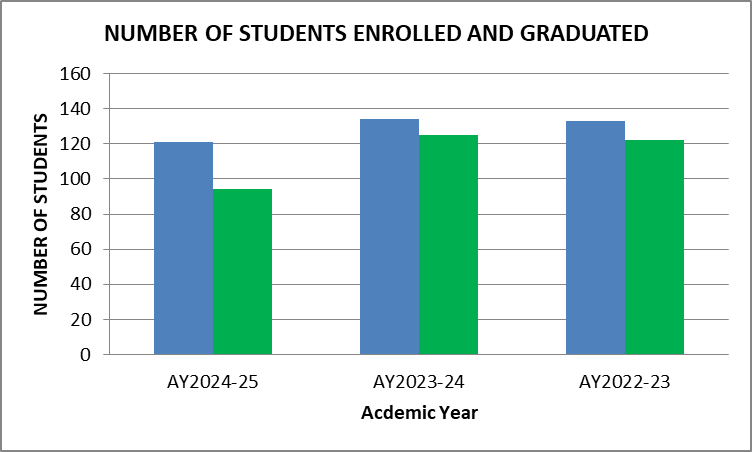
Academic Year 2024-25
| Name of Student | USN | CGPA | Rank |
|---|---|---|---|
| VARSHITHA M S | 4PS21CV086 | 9.2 | I |
| SURAKSHA K P | 4PS21CV079 | 9.17 | II |
| REVANTH N | 4PS22CV427 | 8.9 | III |
Academic Year 2023–24
| Name of Student | USN | CGPA | Rank |
|---|---|---|---|
| SAHANA | 4PS20CV077 | 9.66 | I |
| NISHCHAL G | 4PS20CV059 | 9.16 | II |
| PRATHIBHA N | 4PS20CV063 | 9.08 | III |
Academic Year 2022-23
| Name of Student | USN | CGPA | Rank |
|---|---|---|---|
| ROJA C S | 4PS20CV418 | 9.76 | I |
| RAMYA S | 4PS19CV074 | 9.72 | II |
| MADHUSHREE K N | 4PS20CV412 | 9.25 | III |
Happenings @PESCE CE Explore community & culture at PESCE CE & discover what's happening around the campus.
08 December 2025

06 October 2025

18 June 2025
























